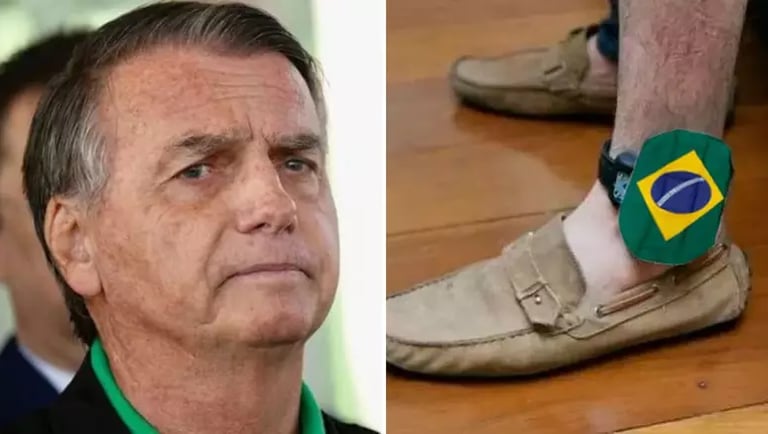
Bolsonaro Under Fire: How Brazilian Democracy Is Confronting Coup Attempts
Brazil’s judicial institutions have demonstrated a strong resolve in upholding accountability—even against a former president. Recent events highlight the power of democratic checks and legal process.
BPR
7/18/20253 min read
Federal Police Raid and Electronic Monitoring
On July 18, 2025, the Federal Police executed search warrants at Bolsonaro’s residence in Brasília and the headquarters of his political party, following orders from the Supreme Federal Court (STF).
Investigators seized:
A pen drive hidden in a bathroom
A cell phone
Approximately USD 14,000 and BRL 8,000 in cash
A copy of the lawsuit filed by the video platform Rumble against Minister Alexandre de Moraes in the United States.
Bolsonaro was placed under house arrest at night, had his passport revoked, and was required to wear an electronic ankle monitor—measures aimed at preventing flight, influencing witnesses, or contacting foreign diplomats and other suspects
Bolsonaro’s Response and Hungarian Embassy
In a press briefing, Bolsonaro claimed ignorance over the pen drive and cash found in his home, stating he would inquire with his wife Michelle if either belonged to her. He asserted:
“I never thought of fleeing, never thought of embassy asylum—this is a supreme humiliation.”
Bolsonaro’s legal team denounced the operation as a democratic assault, alleging abuse of power by the Federal Police under judicial direction even though in mid-February 2024, the former President Jair Bolsonaro spent two nights (February 12–14) at the Hungarian embassy in Brasília after his passport was recently seized during a Federal Police investigation.The risk of attempted escape is real.


The Bigger Picture: Operation “Contragolpe”
These actions are part of Operation Contragolpe, which began in November 2024. It accuses Bolsonaro of leading a coup plot to prevent the inauguration of President Lula da Silva in 2023. The investigation targets 40 individuals, including Bolsonaro, former generals, and key allies.
Criminal charges include:
Attempting to abolish democracy
Organizing a criminal group
Coercion and obstruction of justice
They carry potential sentences of 20 to 40 years in prison if convicted
Foto: The New York Times/Frame


foto: Mais Novela
Democracy in Action
These developments reflect the strength of Brazil’s institutions:
The STF and Federal Police acted independently of political alliances.
Measures were taken based on legal findings—not partisan pressure.
Public and social media discourse reflected shock and approval at institutional actions taken even against powerful insiders.
Despite defense statements labeling the measures excessive, they underscore the principle that no one is above the law.


Why This Matters to Brazilians — and the World
Judicial independence is essential: courts enforced rulings even on a former president with political influence.
Rule of law prevails: the same legal standards apply, regardless of rank.
Civic trust is reinforced: citizens see checks and accountability at work amid political polarities.


What's Next?
Analysis of the pen drive and phone data could reveal communications or evidence of plot coordination.
The trial is expected to continue through September 2025, with public hearings and a final verdict expected later this year
Conclusion
The investigation into Jair Bolsonaro represents a pivotal moment for Brazilian democracy. The enforcement of legal constraints—even onto former leaders—demonstrates that judicial oversight is active, robust, and capable of withstanding political pressure.
This case stands as evidence that Brazil’s judiciary remains dedicated to justice, transparency, and safeguarding democratic values—despite the challenges and controversies surrounding it.
Key Sources
Ação contra Bolsonaro cita reunião com embaixador e posts nas redes sociais
Maior parte das postagens nas redes comemora uso de tornozeleira por Bolsonaro
Bolsonaro diz que não sabia de pen drive
Bolsonaro se hospedou na Embaixada da Hungria
PF encontra dólares, pen drive escondido e cópia de ação contra Moraes na casa de Bolsonaro
Jair Bolsonaro coloca tornozeleira eletrônica
Bolsonaro usará tornozeleira
NEWS
LEGISLATIVE POWER
EXECUTIVE POWER
JUDICIAL POWER
OPINIONS
Updates on Brazilian politics and economy.
ContaCT
© 2025. All rights reserved.
